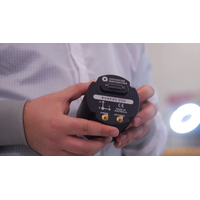
Advanced Navigation Unveils Compact Boreas 50 Series
inertial navigation system (INS), delivering rapid North-seeking in challenging GNSS-denied maritime environments.The 50 Series includes two high-performing variants: the A50 - an attitude and heading reference system (AHRS), and the D50 - a strategic-grade INS.Each is equipped with a North-seeking gyrocompass capable of rapidly determining true North. Powered by Advanced Navigation’s advanced sensor fusion, the series delivers intelligent, reliable navigation within a SWaP-optimized form factor.Featuring all-band GNSS receivers, the D50 offers enhancements in signal availability, heading accuracy
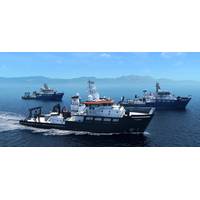
Sonardyne Technology Selected for New Oceanographic Research Vessels
to accurately track and simultaneously communicate with multiple underwater scientific instruments, vehicles or towed platforms, at ranges up to 10,000 m depending on its configuration.The Ranger 2 Gyro USBL 7000 system was specifically selected for its acoustic tracking performance, integrated gyrocompass and reliability in complex deployment scenarios.With Ranger 2 Gyro USBL, scientists and researchers using the RCRVs can be sure of optimal underwater positioning and tracking capabilities, without the need for separate external heading sensors.For vessels equipped with a dynamic positioning system
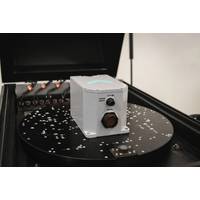
Exail Debuts Octans 9 Gyrocompass
Exail launches its new Octans 9 Attitude and Heading Reference System (AHRS), the latest model in its navigation solutions range. Building on the previous generations, Octans 9 offers several upgrades to enhance operational performance across applications such as dynamic positioning, vessel navigation, and offshore platform stabilization.Leveraging Exail's Fiber Optic Gyroscope (FOG) technology, Octans 9 provides precise measurements with a heading accuracy of 0.1° secant latitude and heave measurement accuracy of 5%. Resilient to GNSS outages, the system secures uninterrupted operations in
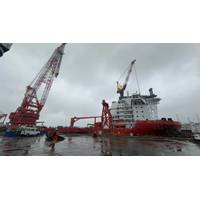
UTEC Gets Offshore Wind Survey Job in Taiwan
and export cables in water depths ranging from 7 to 40 m.UTEC will provide equipment and personnel for online survey, surface positioning and offline data processing and reporting on board an anchor handling tug supply vessel. The equipment includes the Veripos LD8 receivers, iXBlue Octans Surface gyrocompass and Vaisala digital barometers. UTEC also provided trenching survey support on the first phase of the project, which was completed in November 2023. Upon completion, the wind farm will generate approximately 2.4 TWh of clean energy annually.TCP’s Phase 2 offshore wind project was initiated
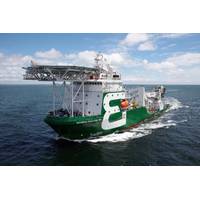
Bourbon Orders Exail Tech to Streamline Subsea Fleet’s Services for Offshore Energy
meters.IMO-HSC certified, the Octans AHRS will enhance Bourbon vessels’ efficiency in installation, maintenance, and repair tasks for the oil and gas, and offshore wind industries, according to Exail.Providing measurements for roll, pitch, and heave, Octans will serve as a survey-grade surface gyrocompass and motion sensor, integrated into the vessels' Class 3 dynamic positioning (DP3) system.This integration will ensure precise positioning and stabilization over underwater structures, ensuring the safe deployment of cranes, remotely operated vehicles (ROVs), and supporting efficient survey
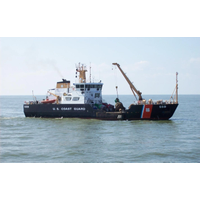
USCG's Keeper Class Buoy Tenders Set for Navigation Upgrade
The U.S. Coast Guard (USCG) has tapped Exail to replace obsolete gyrocompass systems on the 175-foot WLM Keeper Class Buoy Tenders. The $2,244,009 contract awarded to Exail includes Octans gyrocompasses and Netans Navigation Data Distribution Systems (NDDS) and covers a base year and nine options over a 10-year performance period.This upgrade will provide the USCG Keeper Class Buoy Tenders with more precise and dependable navigation capabilities. Built on Exail’s Fiber-Optic Gyroscope (FOG) technology, the Octans gyrocompass will ensure highly reliable and precise navigation data, the
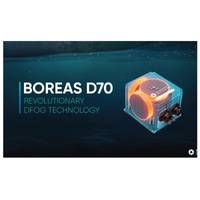
New Product: BOREAS D70, FOG Intertial Navigation System
with Advanced Navigation’s AI based fusion algorithm to deliver accurate and precise navigation. The system features ultra-fast gyro compassing, acquiring and maintaining an accurate heading under the most demanding conditions. While D70 does contain a GNSS receiver, it’s not required for gyrocompass operation.Based on DFOG technology, D70 delivers a 40% reduction in size, weight, power and cost (SWaP-C), when compared to systems of similar performance.0.01° roll and pitch0.1° secant latitude heading (gyrocompass)0.01° /hour bias instability10mm position accuracyThe Boreas SeriesThe
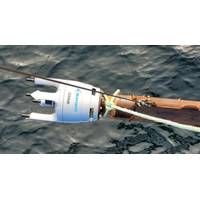
Seaforth Geosurveys adds iXblue Gaps M5 USBL to its Survey Equipment Pool
and high-precision geo-referenced positioning, especially in shallow waters where it has shown accuracy better than 0.5% up to 995m water depths. It is a medium-frequency ultra-short baseline (USBL) system combined with an Attitude & Heading Reference System (AHRS) based on fiber-optic gyrocompass (FOG) technology.
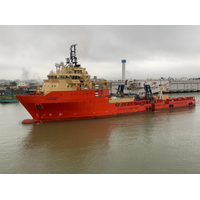
C-Innovation Orders Sonardyne Tech for ROV Ops in Brazil
services company C-Innovation (C-I) has ordered a package of Sonardyne’s underwater positioning and navigation systems to support its operations offshore Brazil.Remotely operated vehicles (ROVs) on board six ROV support vessels (RSVs) in the country will be equipped with Sonardyne inertial, gyrocompass and Doppler technologies, as well as hybrid acoustic-inertial systems.C-I has ordered SPRINT inertial navigation systems (INS), a Lodestar attitude and heading reference system (AHRS), Syrinx Doppler velocity logs (DVLs) and Sonardyne’s hybrid acoustic-inertial underwater vehicle navigation




 December 2025
December 2025





